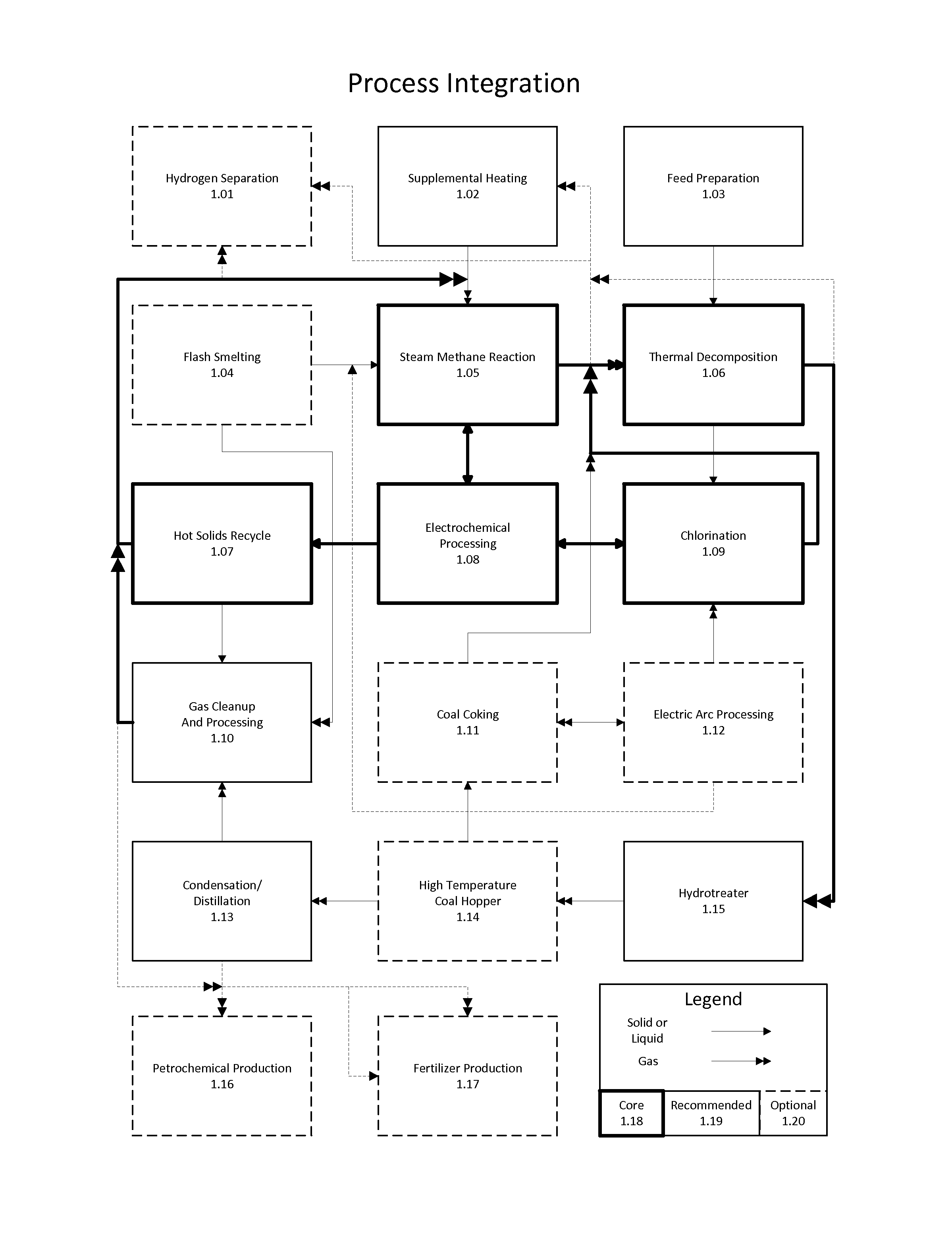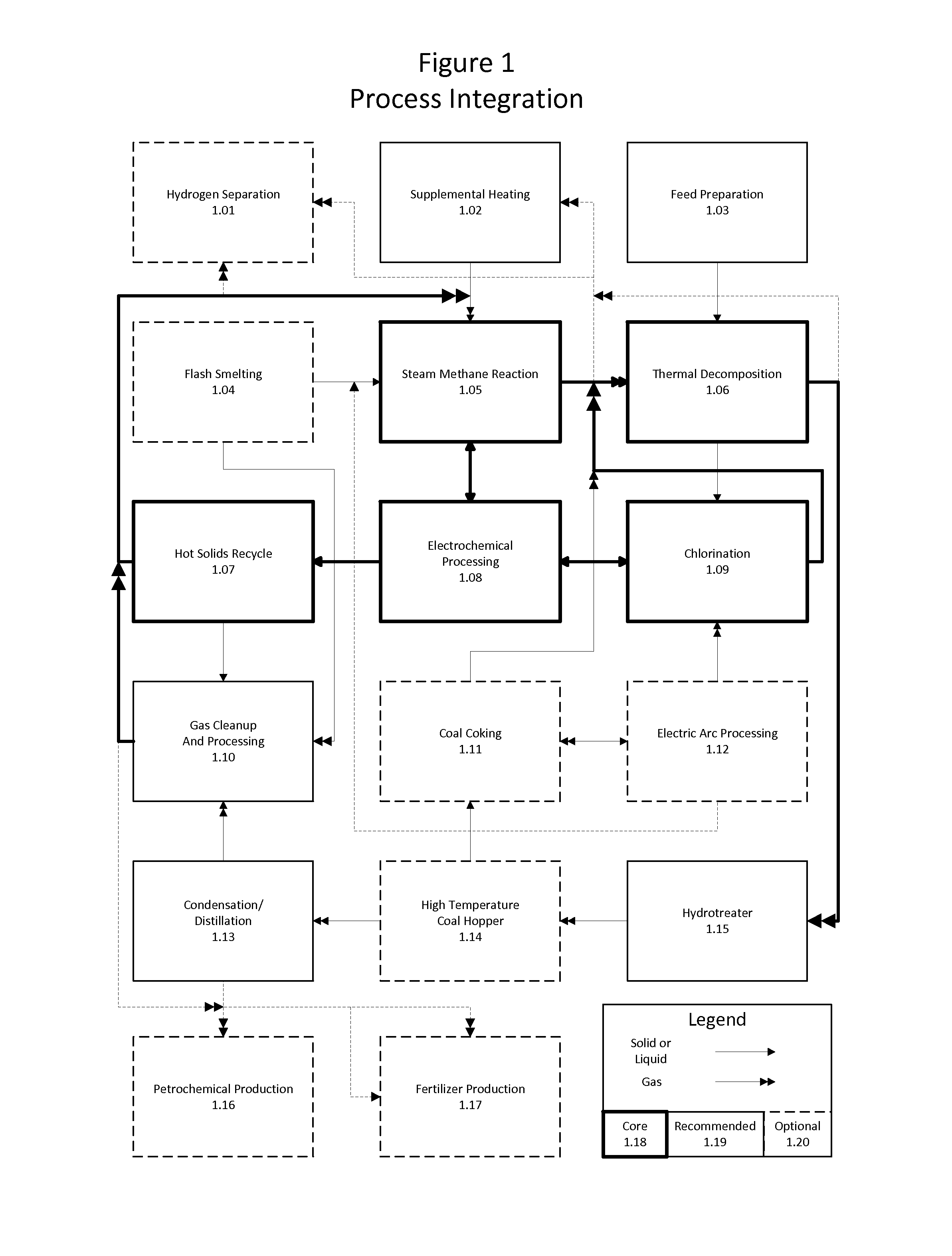Method for the integration of carbochlorination into a staged reforming operation as an alternative to direct residue oxidation for the recovery of valuable metals
a technology of carbochlorination and reforming operation, which is applied in the direction of gaseous fuels, inorganic chemistry, combustible gas production, etc., can solve the problems of reducing the efficiency of the process
- Summary
- Abstract
- Description
- Claims
- Application Information
AI Technical Summary
Benefits of technology
Problems solved by technology
Method used
Image
Examples
Embodiment Construction
[0012]With reference to FIG. 1, multiple configurations of the present invention can be arranged through the inclusion, exclusion, or modification of various subsystems. To those of ordinary skill in the art it should become apparent that only a subset of applicable subsystems has been included in the drawing and this should in no way limit the present invention to such subset. In accordance with a best mode of carrying out the present invention the drawing illustrates the integration of staged reforming with residue chlorination featuring inherent carbon oxide, heat, and waste management.
[0013]In accordance with best modes, all examples are implied to have attached to them an advanced high temperature nuclear reactor as a zero emissions heat source. Furthermore, all supplementary heating, cooling, and electricity required by the combination of integrated processes in the examples is assumed to be provided by said reactor and related apparatus. For the purpose of this disclosure, su...
PUM
| Property | Measurement | Unit |
|---|---|---|
| outlet temperature | aaaaa | aaaaa |
| sensible heat | aaaaa | aaaaa |
| volatile | aaaaa | aaaaa |
Abstract
Description
Claims
Application Information
 Login to View More
Login to View More - R&D
- Intellectual Property
- Life Sciences
- Materials
- Tech Scout
- Unparalleled Data Quality
- Higher Quality Content
- 60% Fewer Hallucinations
Browse by: Latest US Patents, China's latest patents, Technical Efficacy Thesaurus, Application Domain, Technology Topic, Popular Technical Reports.
© 2025 PatSnap. All rights reserved.Legal|Privacy policy|Modern Slavery Act Transparency Statement|Sitemap|About US| Contact US: help@patsnap.com


